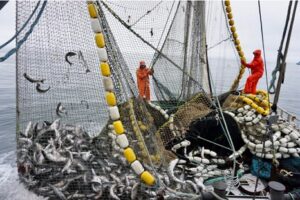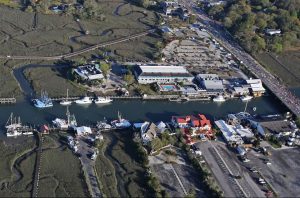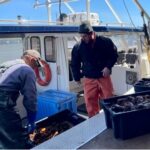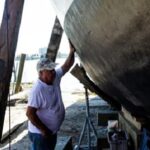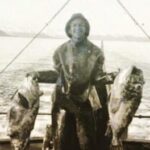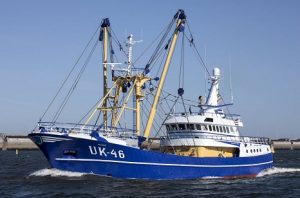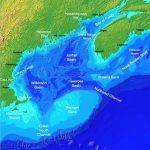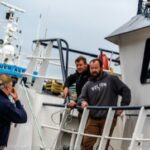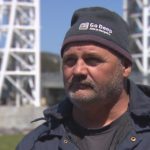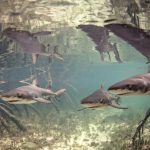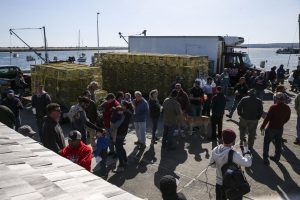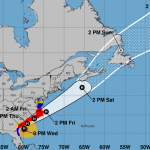Monthly Archives: August 2020
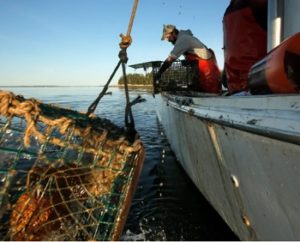
The economic fallout for plummeting demand and prices is producing the worst conditions lobster fishermen have seen in years
“The problem is really only beginning for this industry,” said Sue Clough, who, along with her husband Vincent runs Stern Seafood, a major buyer in Scarborough of lobster harvested by local fishermen.,, Dennis Violette, who has been fishing for lobster out of Scarborough for the past 40 years, said prices for lobster now are about $1.25 per pound less than at this time last year, due to the drop in demand. He and his fellow lobstermen aren’t shipping as many overseas as in previous years, and demand has dropped from processors in Canada, which are usually big customers for local fishermen like himself. If tourists stay away this fall, he said, it’s only going to get worse. >click to read< 09:02
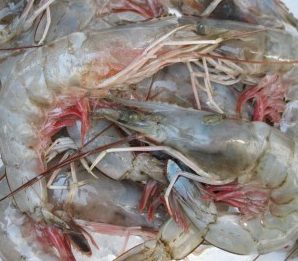
Recreational fishers file lawsuit against State of N.C, and commercial shrimpers
After following this story for over a year, Recreational fishermen are suing North Carolina and commercial shrimpers, accusing them of diminishing fishing populations in the Pamlico Sound.,, The fishers said once the lawsuit is served to the state and shrimpers, they’ll have 21 days to respond. WNCT reached out to North Carolina’s Dept. of Environmental Equality, The State Division of Marine Fisheries, and The North Carolina Fisheries Association. All have declined to speak at this time. >click to read< 15:11
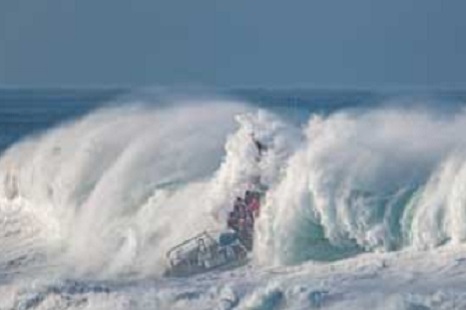
August is Coast Guard Month in Newport
Newport City Council proclaimed August as Coast Guard Month in the city of Newport. Mayor Dean Sawyer read a proclamation honoring the United States Coast Guard at the regular meeting Monday evening, encouraging “all residents and visitors to celebrate and thank the U.S. Coast Guard and Station Yaquina Bay and its individual members for protecting our shores for 230 years.” Sawyer continued, “The United States Coast Guard plays a vital role in the city of Newport and the state of Oregon. Station Yaquina Bay personnel work diligently, keeping safe the commercial fishing fleet, recreational mariners and locals and visitors in their use of the ocean and beaches.” >click to read< 13:14
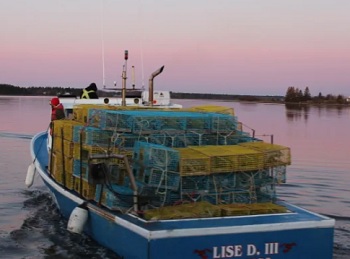
New Brunswick: Grand Manan Fishermen’s Association says financial support program may not be enough
On Wednesday the federal government announced a $469-million program to help fish harvesters deal with financial burdens amid the COVID-19 pandemic, but the Grand Manan Fishermen’s Association worries it won’t be enough. Melanie Sonnenberg told Information Morning Saint John the program leaves out new fishermen and that’s concerning. “They’re our future, and we have to have some recognition, some special programming or something that we can plug them into to make sure they’re looked after so when we come out of this we’ll have a fishing industry that is every bit as robust as it was.” The fish harvesters benefit covers 75 per cent of income losses over 25 per cent for the 2020 tax year, compared to 2018 or 2019. The maximum benefit is $10,164. >click to read< 11:22
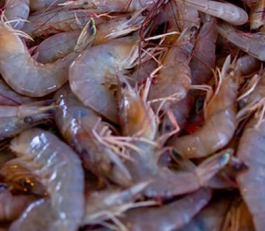
Wicker, Hyde-Smith, Palazzo Announce $30M in Aid for U.S. Shrimp Industry
The announcement comes after the Mississippi lawmakers sent a letter to USDA Secretary Sonny Perdue requesting that he use his authority to purchase and distribute Gulf seafood to those in need during the coronavirus pandemic. Recently-enacted legislation, including the Coronavirus Aid, Relief, and Economic Security (CARES) Act and the Families First Coronavirus Response Act, includes additional support for USDA programs that provide food to distressed communities. “Mississippi’s shrimp industry has been hit hard by COVID19, with many vessels having to stay tied to the dock due to collapsing markets. We are glad to hear the USDA is stepping up purchases of Gulf shrimp and applaud the hard work of our Congressional delegation to make it happen,” >click to read< 09:17
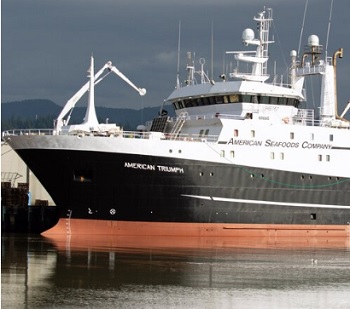
Coronavirus outbreaks keep sidelining vessels owned by one of Seattle’s largest fishing companies. No one’s entirely sure why.
It’s not surprising that fishing vessels would become potentially high-risk environments as the pandemic worsened. Like cruise ships, which became notorious Covid-19 hotspots in the early days of the outbreak, fishing trawlers tend to confine people in close quarters for prolonged periods of time. But several additional factors make fishing vessels susceptible to outbreaks: Living arrangements require people to cram into tight spaces together, sharing bunkrooms, dining areas, toilets, and other facilities. “These people are four to a room,” said Dr. Marisa D’Angeli,“They’re in bunk beds. They share a bathroom with the four people [in the] adjacent [room]—so eight people total. People don’t wear a mask when they sleep.” The work environment, which requires people to work closely together in wet, chaotic circumstances, is no less fraught with transmission opportunities. >click to read< 08:08
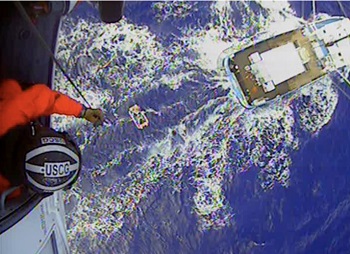
Coast Guard Medevacs injured Fisherman about 150 miles offshore from Yaquina Bay, Oregon.
The Coast Guard medevaced an injured fisherman Tuesday from a 63-foot commercial fishing boat operating about 150 miles offshore from Yaquina Bay, Oregon. Rescued was Nathanial Miller, 24. Watchstanders at Coast Guard Station Yaquina Bay received a call for help Tuesday at about 1:30 p.m. from a person using a satellite phone aboard the fishing boat Piky. After the distress was relayed from the station to watchstanders at Coast Guard Sector North Bend, Oregon, a Coast Guard flight surgeon deemed it necessary to medevac Miller and transport him to a higher level of medical care as soon as possible. >click to read< 13:15
Athearn Marine Agency Boat of the Week: 49′ Marine Mgt Lobster/Scalloper, Detroit Johnson & Towers twin 671N, Permits are available
To review specifications, information and 16 photos, >click here< To see all the boats in this series, >click here<12:06
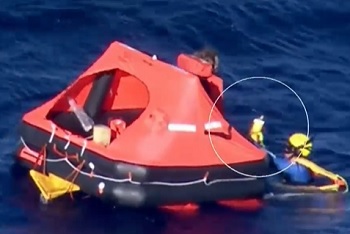
Three Commercial Fishermen rescued from life raft off the NSW south coast
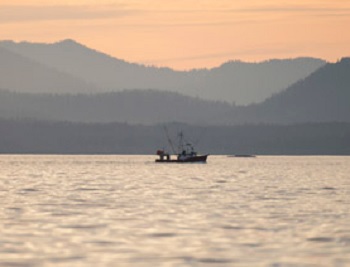
8 Day Southeast Trolling Shutdown to Start Friday
Southeast Alaska’s commercial troll salmon fishery will close for eight days, starting Thursday, due to low abundance of coho salmon, state Fish and Game officials announced today. The fishery will reopen August 15, they said. “The point of the closure is to try to move fish to the inside,” said ADFG Commercial Troll Management Biologist Grant Hagerman. “They’re not being exploited, they’re passing through the fishery… You’ve got this eight-day closure based on the below average (coho) catch rates and below average returns.” Hagerman said coho catches were low in all six trolling areas. >click to read< 10:07
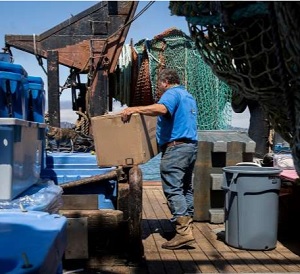
Popular Fisherman’s Wharf boat finds new home to sell fresh fish
The fisherman who built a following over the last three years by selling directly from his boat at Fisherman’s Wharf is moving his operation to the Port of Redwood City, a deepwater harbor jutting into the bay in the middle of Silicon Valley. There, Giuseppe Pennisi will also sell fish and chips and cioppino made with his freshly caught seafood out of a food truck called Pioneer Seafoods.,,, He took out a loan of $200,000 to buy the food truck trailer and to move the business. “I felt that I have maybe 10 more years left of my fishing career and I did not want to change my life,” >click to read< 08:28

#PebbleMine: Donald Trump Jr. tweets opposition to Pebble Mine
Donald Trump Jr. tweeted opposition Tuesday to a massive copper and gold mining project in Alaska that the U.S. Army Corps of Engineers is in the final stages of deciding whether to permit. Trump Jr. commented on and retweeted a message from Nick Ayers, former chief of staff to Vice President Mike Pence. Ayers had posted: “Like millions of conservationists and sportsmen, I am hoping @realDonaldTrump will direct @EPA to block the Pebble mine in Bristol Bay. A Canadian company will unnecessarily mine the USA’s greatest fishery at a severe cost. This should be stopped and I believe @POTUS will do so!” >click to read< 06:24
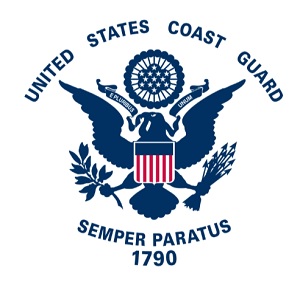
Happy 230th Birthday to the U.S. Coast Guard!
The United States Coast Guard celebrates its 230th birthday today. The Coast Guard was created on August 4, 1790, when the first Congress authorized Secretary of Treasury Alexander Hamilton to construct ten vessels, known as “revenue cutters,” to combat smuggling and enforce tariff laws. Hamilton carried out his charge with enthusiasm, which is why he is considered to be “the father of the Coast Guard.” For the next eight years, the Coast Guard was the United States’ only armed maritime force. >click to read< 21:16

Coronavirus Uncertainties: NOAA Cancels Four Fisheries and Ecosystem Surveys for 2020
Due to the uncertainties created by the COVID-19 pandemic and the unique challenges those are creating for NOAA Fisheries, we are cancelling four research surveys off the East and Gulf Coast of the United States. The cancelled surveys include: Autumn Bottom Trawl Survey (NEFSC), Summer Ecosystem Monitoring Survey (NEFSC), Northern Shrimp Survey (NEFSC), Summer and Fall Plankton Survey (SEFSC). These are difficult decisions for the agency as we strive to balance our need to maintain core mission responsibilities with the realities and impacts of the current health crisis. >click to read< 18:33
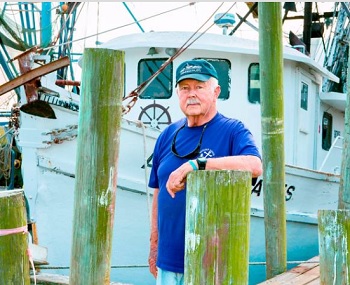
Beaufort boat captain who helped start famed Shrimp Shack dies
A longtime Beaufort shrimper who helped spawn a must-stop Lowcountry food destination died Monday. Robert “Bob” Upton, 82, was surrounded by family at his marshfront home of more than 60 years on St. Helena Island when he died, Upton, with his wife Hilda Gay Upton, started the Shrimp Shack on Sea Island Parkway in 1978,,, He trawled the waters off the coasts of Florida, Georgia and South Carolina for more than 40 years before retiring in 2004. One of his boats, “Miss Hilda,” made a cameo in the hit movie “Forrest Gump.” and the load of shrimp that actor Tom Hanks drops on the deck after the film’s hurricane scene was bought from Gay Fish Co. Video, >click to read< 16:37
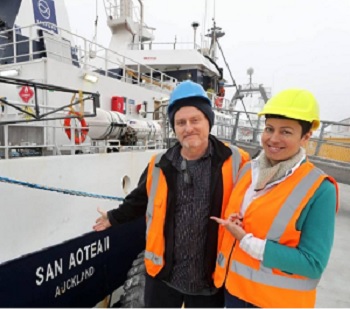
Hitchhiking honeymooners hitch a 9,200km trawler ride – Fishermen, honeymooners back in NZ after voyage from Falkland Islands
A New Zealand honeymoon couple stranded on the remote Falkland Islands in March because of the coronavirus have managed to return home by hitching a ride of more than 9,200 kilometers on an Antarctic fishing boat. Skipper Shane Cottle said he was a bit nervous at first about taking the couple on his 38-meter vessel San Aotea II, along with the crew of 14. >click to read< Fishermen, honeymooners back in NZ after voyage from Falkland Islands – Fifty-nine days after it departed Timaru on a mission to retrieve stranded fishermen from the Falkland Islands, the San Aotea II returned to the port on Tuesday morning – its passengers and crew ecstatic to finally be home. >click to read, and timeline of events< 14:52
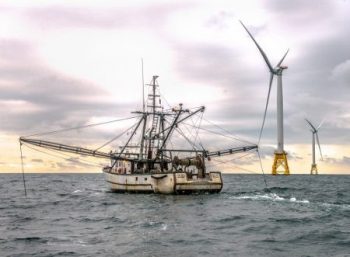
Want The World’s Most Expensive & Unreliable Electricity? Try Offshore Wind Power
The true cost of chaotically intermittent wind power is staggering; the cost of offshore wind power is astronomical. The capital cost of spearing these things offshore is multiples greater than doing so and some dimwitted farmer’s back paddock. Recouping that capital cost means that offshore wind power is 25 times more expensive than coal, gas or nuclear. Jonathan Lesser runs the numbers below, in relation to a herd of colossal white elephants just waiting to be let loose along America’s Atlantic coast. ,,, and someone said they weren’t opposed but wants to work with them!!!>click to read< 12:02

DMF begins process of distributing federal CARES Act relief to fishing and seafood industries
The Division of Marine Fisheries has begun the process to distribute federal disaster relief that Congress and the President approved to mitigate the financial impacts to marine fisheries participants that have suffered at least a 35% loss of revenue due to the ongoing pandemic. In the days ahead, some Massachusetts permit holders in certain sectors will be receiving mailed applications. In March, the CARES Act provided $300 million of aid for the seafood industry with $27.8 million coming to Massachusetts, the third highest of all coastal states. The funds were allocated among the states based on the relative contributions to the economy of four distinct sectors: commercial fishing, marine aquaculture, seafood processing, and for-hire (party and charter boats) fishing businesses. >click to read< 10:14
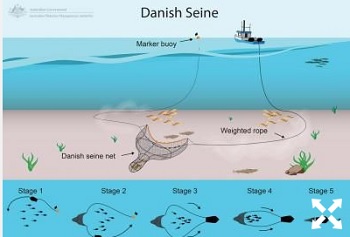
REPORT: Shocking results from seismic research
According to the report, which French seismic company CGG participated in, whiting catches fell by 95% and flathead 75% from January to July compared with the prior six months. While the report is preliminary, and just the first of a four-stage study into seismic acquisition and the effect it has on marine life, it paints a concerning picture for the offshore oil and gas sector as it backs up speculation by fishing companies that seismic acquisition can damage marine habitats.,, The environmental impact of seismic surveys on the marine environment is a hotly contested one, with the oil and gas industry noting it was key to securing exploration, and the fishing industry concerned it is losing catches immediately after surveys are conducted. >click to read< 09:24

New England: Judge Says He’ll Decide Within 2 Weeks When Feds Issue New Right Whale Protection Rules
The federal government and the lobster industry say any change should wait until May 2021 to allow for full review and public comment on new rules once they are proposed. In oral arguments before U.S. District Court Judge James Boasberg Monday, their lawyers argued that the courts should not be in the business of micro-managing the fishery.,, The conservation groups are also calling for an immediate and year-round ban on fishing with rope in an area off Nantucket where the whales have been congregating in recent years. But a lawyer for the Maine Lobstering Union, Alfred Frawley, argued that would cause unwarranted economic harm, because the whales are known to be present mostly for a limited period in the spring. >click to read< 08:14
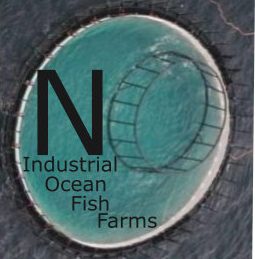
NOAA can’t make rules for offshore fish farms
A federal appeals court in New Orleans has upheld a decision that throws out rules regulating fish farms in the Gulf of Mexico. The law granting authority over fisheries to the National Oceanic and Atmospheric Administration does not also let the agency set rules for offshore fish farms, the 5th U.S. Circuit Court of Appeals said in its 2-1 decision on Monday. “I think this is the final nail in the coffin for industrial aquaculture in federal waters unless Congress gives authority,” said George Kimbrell, who represented opponents of the plan as legal director for the Center For Food Safety. >click to read< 21:47
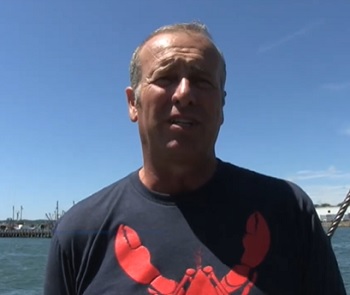
Second coronavirus wave would be ‘catastrophic,’ Massachusetts fishermen say
Commercial fishermen and lobstermen in Massachusetts already “crippled” by the coronavirus pandemic say they fear a second wave in the fall would sink the industry. “If there’s a shutdown then, it could be catastrophic,” said Joey Ciaramitaro, co-owner of Gloucester-based Captain Joe & Sons wholesale lobsters. People think of summer as the lobster season, but really, the fall is when the most lobsters get landed. That’s what we’re most concerned about: shutdowns in the fall,” Ciaramitaro said. Video, >click to read< 19:35
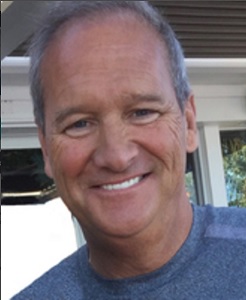
Captain Daniel Balbo – Commercial Fisherman
Gloucester – Daniel Balbo, age 63, of Gloucester, passed away unexpectedly on March 24, 2020. He was the husband of 39 years to Mary Lou (Goulter) Balbo. Born in Gloucester, he was the son of Accursio and Shirley (Roberts) Balbo. He was a graduate of Gloucester High School, Class of 1976.
After high school Daniel followed the family tradition of becoming a commercial fisherman and went on to captain his boat, The Hunter. Daniel was a lifelong resident of Gloucester and loved all its traditions. He especially loved celebrating the St. Peter’s Fiesta and being a seine boat champion. He also was an avid boater and enjoyed his bicycle rides around Cape Ann. >click to read< 17:49
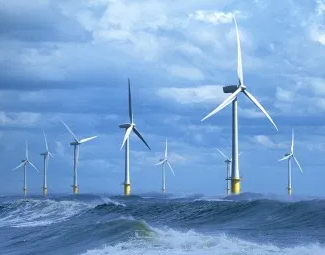
Oil rigs and offshore wind farms may contribute to the spread of non native species
Scientists are investigating what role oil rigs and offshore wind farms play in supporting marine wildlife and the spread of non-native species. The base and legs of platforms, subsea pipelines and wind turbines can be home to different species. The animals include mussels, barnacles, shrimp-like amphipods and anemones. “We want to understand what could happen to the North Sea ecosystem if oil rigs are decommissioned, or offshore wind farms are installed. >click to read< 15:21:44
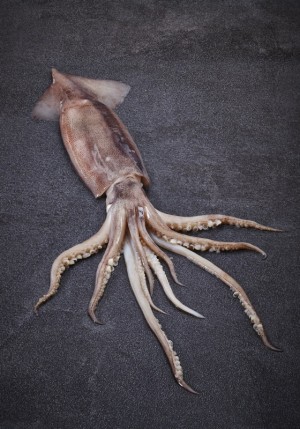
NOAA/NMFS Announces Increase to the Illex Squid Annual Quota Effective August 4, 2020
NOAA Fisheries announces an increase to the 2020 acceptable biological catch (ABC) for the Illex squid fishery from 26,000 mt to 30,000 mt. This quota increase was recommended by the Mid-Atlantic Fishery Management Council based on preliminary work by its Illex Squid Working Group, which concluded that the species continues to be lightly exploited and the fishery footprint is small. The Illex squid fishery has closed each summer in 2017, 2018, and 2019. This increase will enable full utilization of the available resource. This rule is effective on August 4, 2020. >click to read< 13:40
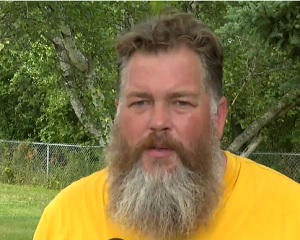
Nova Scotia: Residents raise alarm over causeway’s threat to local fish stocks
“This river is already dying, we’re already losing all of our fish, and along with losing all of our fish, we’re losing our rights as well,” said Nikki Lloyd, of the Annapolis Valley First Nation. Darren Porter, a local fisherman and fishery spokesperson for the Fundy United Federation, said over many years, he’s seen a reduction in productivity for both professional and recreational fishers. Government efforts, he alleged, to improve passage times have fallen short of what’s required to keep the ecosystem healthy. >click to read< 13:08
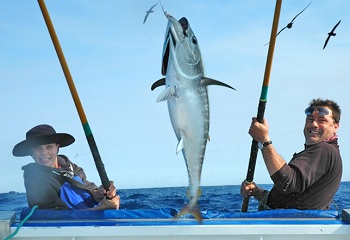
Tuna partnership to drive youth employment
Port Lincoln tuna baron Hagen Stehr and Port Adelaide Football Club Aboriginal programs director Paul Vandenbergh are joining forces to drive jobs for indigenous youth in the seafood industry. The pair, along with Far West Coast Native Title Group director April Lawrie have formed a new company, Wanna Mar Stehr and aim to launch their first branded tuna products in the new year. Vandenbergh is also in the process of finalising 60 training places for indigenous youth at the Port Adelaide-based Australian Maritime & Fishing Academy, which Stehr founded in the 1990s. “The opportunity for those guys will be endless because they don’t have to work for us and they don’t even have to stay in South Australia or even Australia because it’s an international certification. >click to read< 08:59
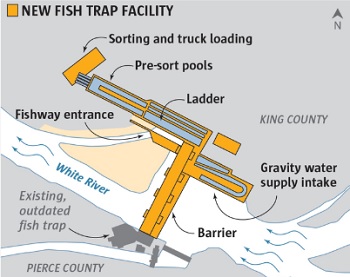
Corps of Engineers to complete New White River fish trap, the biggest facility of its kind in North America
At the insistence of tribes and federal fisheries managers, the Army Corps of Engineers will soon complete the biggest facility of its kind in North America, to capture and transport salmon to free flowing stretches of the White River, a tributary of the Puyallup. Big as an aircraft carrier and made of enough concrete to pave a mile and a quarter of Interstate 5, the White River Fish Passage Facility is expected to be completed in October. The $131 million facility includes a complex of gates, chutes, a fish ladder and even a pair of gleaming stainless steel augers pretty as an art piece, custom-made by J. Nelson Enterprises metalworks in Orting. The augers will lift fish into flumes that carry them to trucks for the 12-mile ride from the fish collection facility at Buckley, where they will be released back to the river above Mud Mountain Dam near Enumclaw, to spawn. >click to read< 14:32
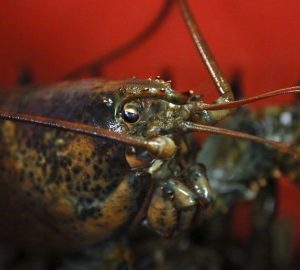
North Atlantic Right Whale: Maine Certified Sustainable Lobster Association loses MSC certification despite sustainable management of the Maine lobster fishery
The Maine Certified Sustainable Lobster Association (MCSLA) announced today that its Marine Stewardship Council (MSC) certification will be suspended due to a recent decision in the federal case Center for Biological Diversity v. Ross. The certificate suspension is occurring despite continued sustainable management of the Maine lobster fishery and remains the direct result of NOAA’s 2014 biological opinion on the impact that lobster fishing has on right whales. The MCSLA is anticipating NOAA’s 2020 draft biological opinion, which may be made public as soon as August 2020. Once the 2020 biological opinion is finalized and implemented, the MCSLA will work to quickly regain its MSC certification. >click to read< 11:45
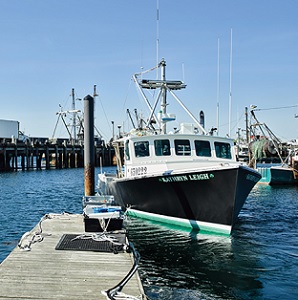
How Coronavirus Has Changed Business for Gloucester Fishermen
Gloucester has been a fishing town since its founding in the early 1620s, and the industry was the backbone of the local economy well into the 20th century. In recent decades, however, the industry has struggled as it grapples with regulations designed to prevent over-fishing and limit environmental damages. Many fishermen with long family histories in the business have had to turn to new professions, and the city’s fishing fleet has declined significantly since its peak. When the COVID-19 pandemic emerged, the situation became even worse. Government mandates and public health recommendations closed the doors of many restaurants, where the vast majority of the seafood consumed in the United States is eaten. In 2017, about 68 percent of the money Americans spent on seafood—some $70 billion—was at restaurants, according to a report from the National Oceanic and Atmospheric Administration. >click to read< 10:11


































